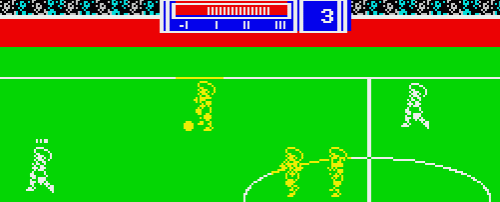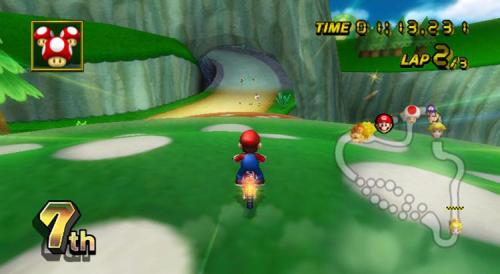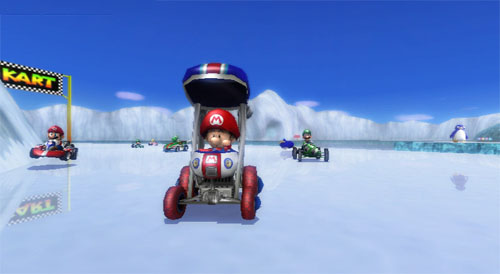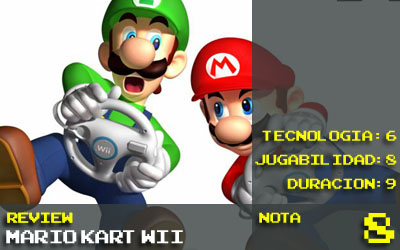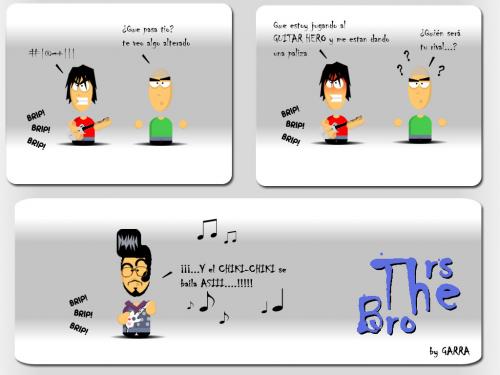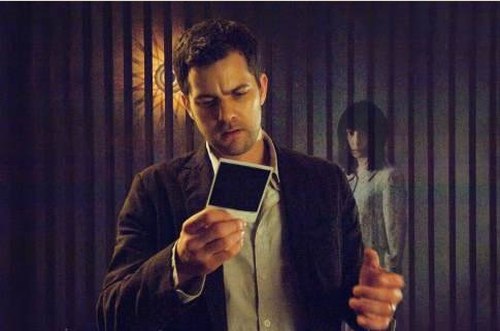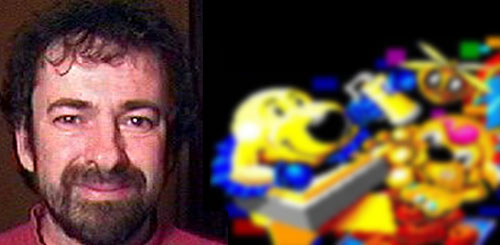
Una de tantas veces en las que se me viene a la memoria aquellos míticos partidos con Match Day II, o las intrincadas salas laberínticas de Bat-Man y Head Over Heels, se me ocurrió que estaría genial preguntarle a su creador por tales clásicos. ¿Por qué no charlar un rato con Jon Ritman? Dicho y hecho, contacté con él. Con la mejor de las predisposiciones, el programador accedió a responderme unas cuantas preguntas a modo de entrevista. Espero que leerla os haga tanta ilusión como a mí. A continuación podéis leer la entrevista original en inglés, o acceder a la entrevista traducida al español.
Entrevista original:
– Pedja: What is your first memory about a personal computer?
– Jon: Seeing the adverts for the Sinclair ZX80.
– Pedja: How was, generally speaking, your experience in Artic Software?
– Jon: They weren’t very organised and it reflected in sales – they did, however, make it easy to give up my day job and become a full time programmer.
– Pedja: Did Ultimate company influence the way in which you designed videogames?
– Jon: Have you seen Batman and Head over Heels, remind you of anything?
Funny but when I did meet the Ultimate team I discovered that they had played my games as much as I had played theirs.
– Pedja: Although I enjoyed playing Bat-Man a lot, I think it is a game too difficult to finish it. Could you tell me what it is shown or what does it appear at the end of the game?
– Jon: Yeah, was a bit too hard, sorry – It ended with him standing on the completed batcraft and the tune playing – a bit lame I know but as the game ended with about 5 bytes unused I didn’t have a lot of options.
– Pedja: How did the idea of great teamwork that we could see in Head Over Heels come up?
– Jon: Funny that, it was really the reverse of the way you would think – with Batman I decided what abilities he should have and then I took them away and allowed you to earn them – Head over Heels was just an extension of that idea except I kept taking some of them away and then returning them throughout the game (by forcing you to separate the two halves of the complete character).
– Pedja: I have read in some paper you really do not like football at all. Why was Match Day born then?
– Jon: It’s true I did hate football at the time, the supporters appeared violent and the game repetitive – I started it after attending a trade show and talking to the distributors about what sort of games would sell – all of them said the same thing, they wanted International Soccer on the Spectrum – I’d seen it in shop windows but never played it and it was fortunate that Match Day ended up a very different game. Funnily enough after making and playing Match Day I began to appreciate the game play of football in general (you still wouldn’t catch me watching a game though).
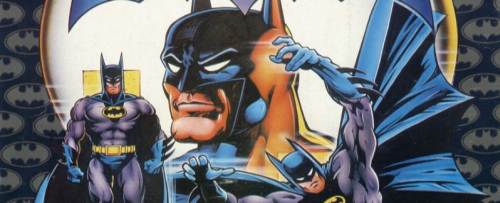
– Pedja: In my opinion, the idea of Kick-o-Meter in Match Day II was a great influence for all football games. What do you think about it?
– Jon: At the time it was just a way to deal with the standard joystick of the day only having one button. All of the innovations that I pioneered such as the twin characters of Head Over Heels or the Kick-o-Meter were not thought of as innovation by me, just ways around problems or small enhancements.
– Pedja: I think Bernie Drummond complemented your applications with his graphics. What does he do currently? How does he going?
– Jon: Haven’t talked to him for years – last I heard he was working in a warehouse – a great waste.
– Pedja: Why Super Match Soccer could not be called Match Day III?
– Jon: Paranoid executives – just don’t go there.
– Pedja: Tell me your best game.
– Jon: My latest of course, wrote it two weeks ago – it has a working title of Deviator – it’s simple enough that you could probably run it on a Spectrum.
– Pedja: Do you play any soccer game currently? What do you think about next-gen?
– Jon: No, my game playing has been spread across Deviator and Mario Kart recently. I love the Wii – I have been saying for years that new input devices were what the games market needed as each would open entire new genres of games – you can’t just keep churning out the same themes with better graphics and sound.
– Pedja: Thank you very much for your time. Just speaking with one of my idol from childhood has been a pleasure for me and I am sure there will be many readers whom will like to read the interview. Good luck and take care.
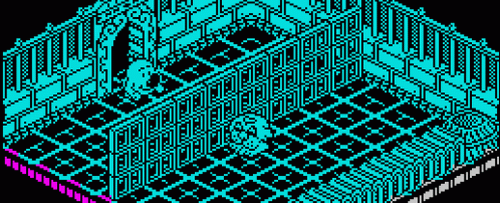
Entrevista traducida al español
– Pedja: ¿Cuál es el primer recuerdo que conservas de un ordenador personal?
– Jon: Cuando ví un anuncio de un Sinclair ZX80.
– Pedja: ¿Qué tal fue tu experiencia en Artic Software en líneas generales?
– Jon: No estaban demasiado organizados, algo que se reflejó en sus ventas. A pesar de ello, facilitaron que dejara mi trabajo por aquel entonces y me convirtiese en programador a tiempo completo.
– Pedja: ¿Influyó la compañía Ultimate de alguna manera en tu trabajo a la hora de diseñar videojuegos?
– Jon: Has jugado a Bat-Man y Head over Heels. ¿No te recuerdan a algo? Es curioso, pero cuando me reuní con el equipo de Ultimate descubrí que ellos habían jugado a mis juegos tanto como yo a los suyos.
– Pedja: Aunque disfruté mucho jugando a Bat-Man, en su día me pareció un juego muy difícil de terminar. ¿Puedes decirme qué sale al final del juego?
– Jon: Sí, Bat-Man era un poco complicado, ¡lo siento! El juego acababa con el protagonista sobre el BatCraft una vez completado mientras sonaba la melodía principal. No suena demasiado convincente, lo se, pero cuando el juego finaliza sólo quedan unos 5 bytes libres, así que no me quedaban muchas opciones más…
– Pedja: ¿Cómo surgió la idea del «trabajo en equipo» que pudimos ver en Head Over Heels?
– Jon: Curiosamente, fue justo al contrario de lo que piensas. Al diseñar Bat-Man decidí las habilidades que podría tener el personaje, y más tarde lo despojé de dichas habilidades, haciendo que el jugador fuera consiguiéndolas poco a poco. Con Head over Heels se extendió esa misma idea: las habilidades del personaje iban recuperándose conforme avanzabas en el juego, algo que se consiguió dividiendo en dos mitades al personaje principal.
– Pedja: He leído en alguna revista que el fútbol no te gusta demasiado. Entonces, ¿cómo surgió la idea de realizar un simulador de fútbol como Match Day?
– Jon: Es cierto, odiaba el fútbol en aquella época. Los hinchas me parecían demasiado violentos y el juego en sí muy repetitivo. Comencé a escribir Match Day después de asistir a una exposición comercial y hablar con varios distribuidores sobre qué tipo de videojuegos querrían vender. Resulta que todos respondieron lo mismo: querían vender el International Soccer de Spectrum. Aunque ya lo había visto en varias tiendas, nunca llegué a jugarlo, y por suerte, Match Day acabó siendo un juego muy diferente de International Soccer. Y curiosamente, después de terminar Match Day y jugar con él, comencé a apreciar el fútbol en general. Eso sí, será complicado que me pilles viendo un partido de fútbol.
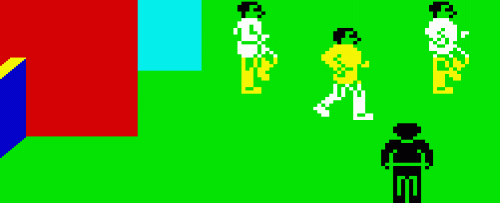
– Pedja: En mi opinión, la idea del Kick-o-Meter (barra de potencia) en Match Day II significó una enorme influencia para todos los videojuegos de fútbol. ¿Qué opinas?
– Jon: Para mí significó proporcionar una manera de controlar el juego con el joystick estándar de la época, el cual sólo tenía un botón. Aquellas innovaciones de las que fuí pionero, como los personajes gemelos de Head over Heels o el Kick-o-Meter no fueron concebidas como una innovación, sino como diferentes maneras de resolver problemas o, simplemente, pequeñas mejoras.
– Pedja: Los gráficos de Bernie Drummond complementaron tus programas. ¿A qué se dedica actualmente?
– Jon: No he hablado con él desde hace años. Lo último que escuché de él es que estaba trabajando en un almacén, donde está desaprovechado.
– Pedja: ¿Por qué Super Match Soccer no pudo ser llamado Match Day III?
– Jon: Paranoias de ejecutivos. Olvídalo.
– Pedja: ¿Tu mejor juego?
– Jon: Por supuesto, el último que escribí, hace dos semanas. Se llama, provisionalmente, Deviator. Es tan simple que probablemente podría ejecutarse en un Spectrum.
– Pedja: Y actualmente, ¿juegas a algún videojuego de fútbol? ¿Qué opinas sobre la Next-Gen?
– Jon: Pues no, mis horas de juego más recientes han sido dedicadas a Deviator y Mario Kart. Me encanta la Wii. Llevo diciendo durante años que lo que necesitaba el mercado eran dispositivos de control innovadores, algo que abriese nuevos géneros de videojuegos. Y es que no puedes conformarte sólo con repetir los mismos esquemas con mejores gráficos y mejores sonidos.
– Pedja: Muchas gracias por tu tiempo, Jon. Ha sido un placer hablar con uno de los ídolos de mi infancia, y estoy seguro de que muchos de los lectores disfrutarán con la entrevista. Buena suerte y cuídate.
